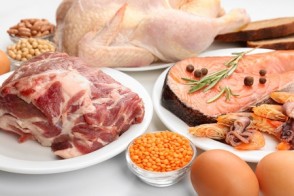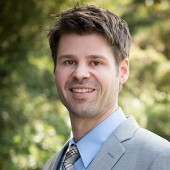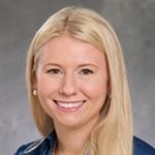Inactive (722)
Children categories
University of Virginia Health System (175)
https://docs.google.com/spreadsheets/d/1JkoiKFuCQmWJsu92gIyaRHywp6JgkKouIV5tbKYQk2Y/pub?gid=0&single=true&output=pdf
View items...Saint Peter’s Better Health Update (10)
Saint Peters Health System
Saint Peter’s Better Health Update
Florida Hospital - Health Chat (19)
$current_analytic_report = "https://docs.google.com/spreadsheets/d/1JkoiKFuCQmWJsu92gIyaRHywp6JgkKouIV5tbKYQk2Y/pub?gid=0&single=true&output=pdf";
View items...
If you're looking to get more fruits and vegetables into your diet, smoothies can be a wonderful option.
Additional Info
- Segment Number 2
- Audio File clean_food_network/1633cf1b.mp3
- Featured Speaker Donna Morin
-
Guest Bio
 Donna Morin is a professional health advocate, founder of Better Off Well coaching services, and Board President for the Savvy Women's Alliance.
Donna Morin is a professional health advocate, founder of Better Off Well coaching services, and Board President for the Savvy Women's Alliance.
Currently, she teaches healthy lifestyle classes and serves as director for a community wellness space.
In addition to her own blog, Donna's work has been published in a number of print publications, including Bay State Parent magazine and Yoga Digest.
Her passion for empowering others with their own health takes her to speaking venues all over New England, but her most important job, she maintains, is raising her near teenage son.
How much protein should you really be getting on a daily basis?
Additional Info
- Segment Number 1
- Audio File clean_food_network/1633cf1a.mp3
- Featured Speaker Sarah Tuff Dunn
-
Guest Bio
 Sarah Tuff Dunn is an award-winning health, fitness and nutrition writer based in Vermont. She writes for a variety of national publications, and her work has appeared in the New York Times, Women’s Health, Men’s Journal and Time Magazine, among others.
Sarah Tuff Dunn is an award-winning health, fitness and nutrition writer based in Vermont. She writes for a variety of national publications, and her work has appeared in the New York Times, Women’s Health, Men’s Journal and Time Magazine, among others.
Sarah is a regular contributor to Clean Eating and Oxygen magazines and writes the “Complements” column each month for Clean Eating. She lives in Shelburne, Vermont, with her husband and two children (ages 8 and 9) and eats popcorn daily.
Additional Info
- Segment Number 4
- Audio File city_hope/1628ch2d.mp3
- Doctors Slavin, Thomas P.
- Featured Speaker Thomas P. Slavin, MD
-
Guest Bio
Thomas Slavin, M.D., is an accomplished physician specializing in identify hereditary diseases and syndromes, including genetic components of cancers — particularly gastrointestinal, genitourinary and rare cancers. Dr. Slavin completed his undergraduate degree and medical school training at the University of South Florida. Following medical school, he completed both a pediatric and a medical genetics residency program at Rainbow Babies and Children’s Hospital/University Hospitals, Case Medical Center in Cleveland, Ohio. In residency he completed research on hereditary cancer syndromes and identified novel genetic epidemiologic associations for coronary artery diseases and hypertension.
Learn more about Thomas Slavin, M.D -
Transcription
Melanie Cole (Host): Lynch syndrome is an inherited condition that gives a person a higher risk of cancers of the digestive tract, gynecologic tract, and other organs. My guest today is Dr. Thomas Slavin. He's a clinical geneticist and assistant clinical professor in the department of medical oncology and therapeutics research at City of Hope. Welcome to the show, Dr. Slavin. A lot of people, this is a new one for some people, what is Lynch syndrome?
Dr. Thomas Slavin (Guest): Lynch syndrome is an inherited predisposition to getting colorectal cancer and other cancers from your family and so it's in our mom and dad’s genetics. It affects probably somewhere around 1 in 500 people per everyone. It's almost as common as, or at least in the ballpark of, similar syndromes like BRCA1 and BRCA2 that people that commonly think of when they think of Angelina Jolie now, who made those really famous. It's something commonly tested for people that get colorectal cancer and we see it all the time.
Melanie: So, then, what are some of the signs if you're looking at specific cancers like colorectal cancer or some of the other digestive cancers? Where does Lynch syndrome fit into that picture? Is there now a genetic test? Does the family get tested? Tell us about that.
Dr. Slavin: Yes, there has been a recommendation that literally every single person that get colon cancer should have at least a tumor test that can hint whether that person may have Lynch syndrome or not. Now, that is not being done currently at all centers; however, in a lot of centers it is. When the test is done, if it comes back abnormal, a lot of people get picked up that way and so they get referred to someone like me to try to figure out if it's really from their mom or dad's genetics. Other ways would be if there is a really strong family history of colon cancer, especially on one side of their family, there's criteria that's called the Amsterdam 1 and Amsterdam 2 criteria to pick up those families. In Amsterdam 2, it picks up even more families because in addition to colon cancer, there is the huge risk for other cancers, particularly for women, uterine cancer. That’s the other big one where almost 70% of women with Lynch syndrome will get uterine cancer.
Melanie: So, like BRCA1 and BRCA2, Dr. Slavin, people hear about those as you say in the media. People don't understand that everybody has that gene. It's the mutation of the gene that you have or not, so is this similar that way? We're all going to have these gene, the MLH1 and such? And, it's a mutation? Or, do you just not have the gene if you are not at risk for this?
Dr. Slavin: Good question. Yes, these are exactly like BRCA1 and BRCA2. So, breast cancer gene 1 and breast cancer gene 2. Those were the first genes discovered putting people at a really high risk for breast cancer. Breast cancer gene 1 was the first one. And, at a similar time in genetics, we were identifying a lot of families at high risks for other hereditary cancers syndromes. The other classic syndrome, at that time, was a kind of a friend of Lynch syndrome, in a way. It's called familial Adenomatous Polyposis Syndrome. It's, in a weird way, almost the opposite of Lynch syndrome because those people get thousands of polyps all through their colon, but the family histories are so striking that it was one of the first other cancer syndromes to get picked up along with BRCA1. Then, Lynch syndrome was identified many, many decades ago, at least by families, and some of the work by Dr. Lynch, who the syndrome is named after now, was really collating those families trying to figure out was there a risk in the family thinking that it was due to a gene. Then, as genetic technologies got better over the decades, being able to identify some of the genes that you brought up, MLH1 and MLSH2, and then there's another gene, MSH6 and PMS2, and some other variations thereof that affect the gene. Now, you are 100% correct. We all have these genes we all have MLH1. We have two copies: one copy came from our mom; one copy came from our dad. In the majority of people, MLH1 works totally perfect. Its job is to repair DNA. It’s very similar to how BRCA1 and BRCA2 work. It’s a little bit different pathways but it is in this pathway called "mismatch repairs". It just tries to fix our DNA. If there's a problem in that gene, it's almost always inherited from a parent and that does set up for Lynch syndrome. If one gene is not working correctly, you still have a totally normal working copy. You know, the theory is you don't develop the cancer: the colon cancer ,the endometrial cancer, or whatever cancer we're talking about, until that second copy in that same cell has a problem. So, that's why you see early onset of cancer. I digress a little bit in the sense of talking now about that "the two-hit hypothesis". This was an old cancer hypothesis that's been around a long time by Dr. Knudson and whatever first two is, our cells have all these little proteins that try to fix our DNA. If something happens with one of those copies of the actual fixer itself in the DNA, you are fine because you still have a backup copy. However, the second time or the second hit, essentially, of your other working copy of that same little gene, so we're talking about MLH1. If one copy stops working in your 40s and then in your 70s, the second copy in that same cell line stops working, then you develop colorectal cancer at 70. What happens in Lynch Syndrome and similar to the other hereditary cancer syndromes, because they're mostly tumor suppressor syndromes involving tumor suppressor genes, so trying to keep tumors at bay. You're born with one strike against you. So, you're born and you already have one strike against you. Instead of getting that second hit when you're in your 70s, that second hit really comes in your 30s or 40s in that same cell line. That's why you see really early onset cancers that can be really striking in these families.
Melanie: So, are there some screening options for Lynch Syndrome? Do you want people to have more colonoscopies than the average person or testing for H pylori? Is there anything that people can do prophylactically to help themselves with these strikes against them, as it were?
Dr. Slavin: Yes, absolutely. At City of Hope, as you know, we are a national comprehensive cancer network center, so we participate in the guidelines--national comprehensive cancer network guidelines--which have really, in a sense, become kind of global guidelines for these kinds of things. I mean, definitely in the United States but very international adopted guidelines. You know, what I say to my patients with Lynch Syndrome is, our goal is to keep you free of cancer now. You do not need to be theoretically dying of cancer, at least some of the cancers that we can prevent now. There are clearly some cancers that are extremely difficult to prevent in 2016 or even detect early that are apart of Lynch Syndrome, such as the very low likelihood of getting brain cancers and pancreatic cancers. However, even our detection of those is getting better and, overall, they are a very small percentage like 1% to 5% of all the people with Lynch Syndrome. The major cancers, the most frequent that we see such as colon cancer, endometrial cancer, ovarian cancer, stomach cancer, these we should be pretty proactive in our ability to keep people cancer-free. What we recommend for people with Lynch Syndrome is to start getting colonoscopies between 20 and 25 or, 2 to 5 years prior to their earliest point cancer in the family. We recommend, instead of the average U.S. risk person to start colonoscopies at 50 and then every ten years, we recommend starting really at that age that 20 to 25 and then every one to two years. So, it's very tight colon surveillance. Now what that means is it takes years for a colon polyp to turn into cancer and so we should be able to keep someone cancer-free because, theoretically, we should be able to pluck out any polyps that are there prior to it developing cancer. If you're getting very frequent colonoscopies, really, I mean, in theory, we should be able to keep you nice and cancer-free. Now, there's other screening that comes along. We also recommend doing the scope through the mouth and looking at the stomach. Now, the stomach cancers and Lynch Syndrome are a little bit later in onset, so we don't usually recommend that till 30 to 35, unless there's some really early stomach cancer in the family. We may dial it down. Yes, treating H pylori, as you brought up, is the big one. For the uterus and the ovaries, we recommend, right now, the uterus, that consideration of removing the uterus, usually at 35 to 40 or at the end of childbearing in addition to removing the ovaries at that time. In particular, because with ovarian cancer, there's no effective screening, unfortunately, in 2016. That's really held up in studies although this may change over time as well. But, at least right now, to keep people free of ovarian cancer, that's the recommendation. Then, we also perform urine screenings once a year just to see if we can pick up any abnormal cells in the urine that might indicate some of the urinary tract cancers that people can get. Pancreatic cancer, there's some research screening that's going on and we tend not to do that unless there's a family history of pancreatic cancer. Now, we don't change breast cancer surveillance for Lynch Syndrome individuals because this is not thought to be strongly linked to breast cancer. Other than that just making sure that there's nothing going on at least once a year, at least not anything unusual like new headaches waking somebody up from sleep every night; things that could be concerning for a brain tumor. I also do a full neurologic exam when I see people just to make sure everything is working like it's supposed to. I mean, doing that kind of screening on everyone, you know, a planned screening which is really, again, per the NCCN guidelines is pretty good and the goal is to keep people nice and healthy. Personally,, I even have a Lynch Syndrome screening clinic and a surveillance clinic. This is literally what I do in the clinic. So, our goal is to keep people cancer-free and to help protect their family.
Melanie: What great information, Dr. Slavin, and last question here: who do they go to see to get all of these screenings? Do they come and see a geneticist? Do they go to an oncologist right off the bat? Who do they go to see?
Dr. Slavin: I think the most important thing is to have an open dialogue with your treating doctors. That's step one. Step two is really finding someone that has experience in Lynch Syndrome. You know, you don't want necessarily to be the first patient time to someone's ever had with Lynch Syndrome. You want to try to get to somebody that has some expertise. In most places, that would be most cancer centers or really big hospital systems in general because, again, a lot of people with Lynch Syndrome don’t have cancer yet. They may not be plugged into a cancer center at the present time because they just have a family history of cancer. They were just identified with the genetic change that put them there and put them with the molecular diagnostics of Lynch Syndrome. Usually, the person that does the genetic testing, if they've had genetic counseling through a genetic professional, such as a genetic counselor or a clinical geneticist. Those people, if they don't do the screening program themselves, know who does in the community. That's an excellent place to start. Start with the centers that do the genetic testing. Now, there are a lot of patients getting tested through their regular doctors for Lynch Syndrome. I think a good question is, okay, so if it does come back positive, who are you going to send me to? Because, you know, it's good just to have that knowledge in hand prior to always doing that testing. I do always recommend, as well as many guideline committees, having genetic counseling prior to having this testing. It also makes it a very smooth flow where, if you do get identified with Lynch Syndrome, now everything's already in motion. You can be referred immediately to the right specialist so the next set of questions can all be answered about your management and surveillance. In general, I would say most major cities, now in today's day and age, because Lynch Syndrome is common enough, will definitely have experts in Lynch Syndrome. A lot of times, there are actually gastroenterologists just because they're the ones doing a lot of the screening. You know, I will say though, you heard the whole list of cancers that I put out and hopefully that got across that this is a very constitutional systemic kind of condition. You can get a lot and besides just the colon cancer, there are a lot of other things we would recommend screening for. That's why it's just important, even if you do end up at a gastroenterologist, making sure that they are still thinking about asking you if you have had any new headaches or doing a neurologic exam on you, doing the urine screening, thinking about uterus and ovaries for women so that your care is being handled appropriately. There are also a lot of patient sites out there as well that can help, especially in our age of information. For instance, we just did a hereditary colon cancer family day where we had a lot of families with Lynch Syndrome come to City of Hope and we did an educational day for families patients and their families. It was that put on through one of the organizations nationally that it is the patient advocacy kind of an organization that connects families with Lynch Syndrome as well. There are some of those out there that are good sources of information because not everyone has access to the National Comprehensive Cancer Network guidelines, obviously, but everybody has access pretty much, in today's day and age, to internet and can get in touch with some of these organizations.
Melanie: Sure. Well, what a fascinating topic and such great information. I applaud all the good work that you are doing, Dr. Slavin, at City of Hope. Thank you so much for being with us today. You're listening to City of Hope Radio. For more information, you can go to city of hope.org. That's city of hope.org. This is Melanie Cole. Thanks so much for listening.
- Hosts Melanie Cole, MS
What if you could improve your physical appearance simply by tweaking the types of foods you eat?
Additional Info
- Segment Number 5
- Audio File clean_food_network/1632cf1e.mp3
- Featured Speaker Heather Christo, Chef
-
Guest Bio
 Heather Christo is a formally trained chef, caterer, and the voice behind the popular food blog HeatherChristo.com, as well as a permanent contributor to ThePioneerWoman.com.
Heather Christo is a formally trained chef, caterer, and the voice behind the popular food blog HeatherChristo.com, as well as a permanent contributor to ThePioneerWoman.com.
Her recipes and food photography have been featured in many national magazines and television shows, and she is the author of Heather Christo’s Generous Table and Pure Delicious: More Than 150 Delectable Allergen-Free Recipes Without Gluten, Dairy, Eggs, Soy, Peanuts, Tree Nuts, Shellfish, or Cane Sugar.
She lives in Seattle with her husband and two young daughters.
Almond milk has a huge fan base, but there are many other "alternative" milks that can be created from foods like soy, seeds, grains and coconut.
Additional Info
- Segment Number 4
- Audio File clean_food_network/1632cf1d.mp3
- Featured Speaker Dina Cheney, Author
-
Guest Bio
 Dina Cheney is the author of the new book: THE NEW MILKS; 100-PLUS DAIRY-FREE RECIPES FOR MAKING AND COOKING WITH SOY, NUT, SEED, GRAIN, AND COCONUT MILKS (Atria/Simon & Schuster, May 3, 2016), plus the creator of the dairy-free/plant milk resource site, www.thenewmilks.com.
Dina Cheney is the author of the new book: THE NEW MILKS; 100-PLUS DAIRY-FREE RECIPES FOR MAKING AND COOKING WITH SOY, NUT, SEED, GRAIN, AND COCONUT MILKS (Atria/Simon & Schuster, May 3, 2016), plus the creator of the dairy-free/plant milk resource site, www.thenewmilks.com.
She is the author of six cookbooks:
The New Milks; 100-Plus Dairy-Free Recipes for Making and Cooking with Soy, Nut, Seed, Grain, and Coconut Milks (Atria/Simon & Schuster, May 3, 2016)
Mug Meals (The Taunton Press, Spring 2015)
Meatless All Day (The Taunton Press, 2014)
Year-Round Slow Cooker (The Taunton Press, 2013)
Williams-Sonoma; New Flavors for Salads (Oxmoor House, 2009)
Tasting Club (DK, 2006)
In addition, Dina has contributed recipes and text to numerous magazines, including Clean Eating, Every Day with Rachael Ray (she was the "Taste Test" columnist for more than three years), Parents, Fine Cooking, Prevention.com, Weight Watchers (books), Coastal Living, Cooking Light, Food52, Huffington Post, Specialty Food, and more.
Dina's passion for food is also expressed through her artwork. She styles and photographs many of her recipes, and paints still lifes of fruit, vegetables and flowers. Her photographs have been published in O The Oprah Magazine and on Prevention.com and have been shared on Instagram by Food & Wine, Health, Every Day with Rachael Ray, Cooking Light, and Real Simple magazines.
Recently, Dina founded The New Milks (www.thenewmilks.com), a dairy-free resource site through which she is popularizing delicious and healthful plant-based, alternative, or dairy-free milks.
She's judged the sofi Awards (given out by the Specialty Food Association); conducted over 45 tastings and talks nationwide; and taught over 100 cooking classes through her (former) culinary instruction business, Cooking by Heart. Dina is currently teaching recreational group classes at The Natural Gourmet Institute and The Institute of Culinary Education, both in Manhattan.
More than 200 media outlets have covered her work. Just a few include the New York Times, Food & Wine, Cooking Light, Redbook, Real Simple, NPR's The Splendid Table, Every Day with Rachael Ray, Philadelphia Inquirer, New York Post, Fox News in Boston and New York, NBC News, and Wisconsin Public Radio.
Before embarking on her career in writing and teaching, Dina graduated from Columbia College, Columbia University (Anthropology/English Literature) and the Institute of Culinary Education Career program. She also studied art at the Rhode Island School of Design and The Yellow Barn Studio and Gallery.
From ADHD and autism to asthma and thyroid disorders, the GAPS Diet may be your answer.
Additional Info
- Segment Number 3
- Audio File clean_food_network/1632cf1c.mp3
- Featured Speaker Hilary Boynton & Mary Giordano Brackett
-
Guest Bio
 Hilary Boynton, certified holistic health counselor, received a BA in psychology from the University of Virginia and was trained at the Institute for Integrative Nutrition. The devoted mother of five young kids, Hilary has seen the power of nutritional healing firsthand. Inspired by her own experience of "food as medicine," she has dedicated herself to helping others on their path to wellness as a cook, coach, and professional educator. Hilary supports her clients by integrating "Paleo" and "Primal" philosophies with the wisdom of the Ancestral Health Movement and the Weston A. Price Foundation. Hilary is a Weston A. Price chapter leader, has run several local food co-ops, teaches cooking classes out of her house, and helped to open a farm-to-table restaurant in Concord, Massachusetts. She lives in Topanga, California, with her family.
Hilary Boynton, certified holistic health counselor, received a BA in psychology from the University of Virginia and was trained at the Institute for Integrative Nutrition. The devoted mother of five young kids, Hilary has seen the power of nutritional healing firsthand. Inspired by her own experience of "food as medicine," she has dedicated herself to helping others on their path to wellness as a cook, coach, and professional educator. Hilary supports her clients by integrating "Paleo" and "Primal" philosophies with the wisdom of the Ancestral Health Movement and the Weston A. Price Foundation. Hilary is a Weston A. Price chapter leader, has run several local food co-ops, teaches cooking classes out of her house, and helped to open a farm-to-table restaurant in Concord, Massachusetts. She lives in Topanga, California, with her family.
Hilary recently Co-authored the best selling cookbook, The Heal your Gut Cookbook, released in September 2014. The success of her book, and the lessons she learned along the way, helped to fuel her new project. YUM YUM became a reality when she realized she just had to do more. The letters of pleas for help, from sick people all over the world, opened her eyes to this global problem of ill health. The passion and determination she has to empower people to take control of their own health and prevent disease is tireless. She and her family have battled many health issues themselves including cancer, epilepsy, infertility, eczema, and Alzheimer’s amongst others.Mary Giordano Brackett is a whole-foods advocate and a creative entrepreneur based out of Boston, Massachusetts. After receiving her BFA in photography from Massachusetts College of Art and Design, Mary went on to photograph hundreds of weddings, events, people, and places before recognizing her true passion: the healing power of real food. Combining a love of the creative arts with a devotion to ancestral nutrition is her life's work, illustrating and illuminating the importance of our food choices. Mary works on projects that enlighten people in regards to their health, in hopes of helping people free themselves from the tyranny of Frankenfood and reclaim their birthright: health and happiness.
Mary's health journey has spanned decades, and knowing first hand how discouraging life can seem when disease is present, she is constantly searching out new information for her BioIndividual Nutrition Consulting clients. Her goal is to make IBS a thing of the past and help as many people as possible to truly thrive.
Mary happily serves up three homemade meals a day to her husband, son and daughter in their Watertown, Massachusetts, home.
Is that really lobster in your lobster roll?
Additional Info
- Segment Number 2
- Audio File clean_food_network/1632cf1b.mp3
- Featured Speaker Larry Olmsted, Author
-
Guest Bio
 Larry Olmsted is an award-winning journalist and author who has written several thousand articles for major newspapers and magazines worldwide over the past 20-plus years. A George F. Baker Scholar at Georgetown University, he did his graduate work at Dartmouth College, where he will be teaching a nonfiction writing class this fall.
Larry Olmsted is an award-winning journalist and author who has written several thousand articles for major newspapers and magazines worldwide over the past 20-plus years. A George F. Baker Scholar at Georgetown University, he did his graduate work at Dartmouth College, where he will be teaching a nonfiction writing class this fall.
He has been a print columnist for two of America’s three national newspapers, Investor’s Business Daily and USA Today, and has written for many other prominent papers including the Financial Times, New York Daily News, Boston Globe, Denver Post, South China Post, and others. His magazine work has included Playboy, Popular Science, Outside, Men’s Health, Inc., Worth, American Airlines’ American Way, Robb Report, Golf Magazine, US Airways Magazine, and dozens of others.
He has written for numerous specialized culinary publications, including Relish and the magazine of the James Beard House. Most memorably, he once had dinner with the late, great Julia Child; skied with Chef Wolfgang Puck; and was a guest judge on Gordon Ramsay’s TV series Master Chef. He has attended cooking classes in Italy, England, Mexico and the United States, and is certified as competition barbecue judge by the Kansas City Barbecue Society.
He currently writes one of the most popular columns for Forbes online, is USAToday.com’s weekly "Great American Bites" restaurant columnist, is the Contributing Travel Editor for Cigar Aficionado magazine, and has held numerous other editorial or columnist positions for a variety of publications.
He was named one of the “10 Most Extreme U.S. Journalists,” by the Society of Professional Journalists and Travel Writer of the Year, 2010-2011, by the State of Mississippi. His Forbes.com column was named one of the World’s Top 100 Travel Sites. He has been a panelist or guest speaker at several conferences and appeared as an expert on radio and television dozens of times.
He has contributed chapters to several guidebooks within the Unofficial Guides and Michelin series. His last hardcover release was Getting Into Guinness (Harper Collins, 2008), a mixture of history and participatory journalism capturing the colorful story of the bestselling copyrighted book in human history, Guinness World Records. He has personally set or broken three world records in the process.
Olmsted has spent the past four years researching the topics of Real and Fake Food, a journey that took him to Japan, Alaska, Chile, Argentina, Scotland, Ireland, Italy, France, Spain, Portugal, South Africa, and all across the United States and Canada.
Certain nutrients can boost immunity, and you can find them in travel-friendly sizes.
Additional Info
- Segment Number 1
- Audio File clean_food_network/1632cf1a.mp3
- Featured Speaker Sarah Tuff Dunn
-
Guest Bio
 Sarah Tuff Dunn is an award-winning health, fitness and nutrition writer based in Vermont. She writes for a variety of national publications, and her work has appeared in the New York Times, Women’s Health, Men’s Journal and Time Magazine, among others.
Sarah Tuff Dunn is an award-winning health, fitness and nutrition writer based in Vermont. She writes for a variety of national publications, and her work has appeared in the New York Times, Women’s Health, Men’s Journal and Time Magazine, among others.
Sarah is a regular contributor to Clean Eating and Oxygen magazines and writes the “Complements” column each month for Clean Eating. She lives in Shelburne, Vermont, with her husband and two children (ages 8 and 9) and eats popcorn daily.
Additional Info
- Segment Number 5
- Audio File allina_health/1627ah5e.mp3
- Doctors Hamilton, Ella
- Featured Speaker Ella Hamilton, - CNP, Coon Rapids clinic
-
Guest Bio
Ella Hamilton, CNP is a board-certified nurse practitioner specializing in pediatrics. She has professional interests in adolescent health, mental health and health promotion. She became a nurse practitioner because: she wanted to help children as they grow through different ages and stages. she saw a pediatric provider when she was little who had a great impact on me. She has six younger siblings and from an early age she took care of their scrapes and cuts; that’s when she knew she wanted to become a provider.
Learn more about Ella Hamilton, CNP -
Transcription
Melanie Cole (Host): Human Papillomavirus is the most common sexually transmitted infection in the United States. My guest today is Ella Hamilton. She's a Certified Nurse Practitioner in pediatrics at Allina Health Coon Rapids Clinic. Welcome to the show, Ella. Tell us, what is HPV? Everyone hears about it in the media. What is human papillomavirus?
Ella Hamilton (Guest): Human papillomavirus is a virus, and there are actually a hundred different strains of the virus and it's the most common cause of genital warts and cervical cancer and other kinds of cancers in boys, as well, such as penile and anal cancers, actually.
Melanie: So, now we're hearing from the American Academy of Pediatrics recommendations for this vaccine for this vaccine to be given. First of all, is it to be given both to boys and girls?
Ella: Yes. It should be given to both boys and girls.
Melanie: And what ages?
Ella: We recommend that the series be started at the age of 11.
Melanie: Is there a reason for this?
Ella: There is, actually. There are several reasons. We start the series at 11 because there's a more robust immune response if we start the series early and then, starting at 11, 12, 13, those ages, kids are coming into the clinic more frequently. They are usually come in yearly and in the later teenage years, we don't' tend to see kids quite as often, so we try and get the series started as soon as possible.
Melanie: So, I'm going to jump right into the heart of this. At eleven years old, some parents say, and you just mentioned there's a robust immune response, which is such an important factor to note for parents, but parent say "Well, if this is a sexually-transmitted infection, I don't need to give it at eleven. My kids are not doing anything like that, then."
Ella: Right. Yes. And my response to parents is always, "I know it's really hard to think about your kid being sexually active, but at some point they probably will be, so it's best to give the vaccine when we think it's going to protect them the most," and that's really starting at that age, eleven.
Melanie: Are there some risk factors with not receiving the vaccine?
Ella: Well, if you don't receive the vaccine, all people who are sexually active really have a very high risk of coming in contact with HPV. I think up to 80 or 90% of sexually active teens and adults come into contact with some strain of HPV. So, it's not an "if" they come in contact with it. It’s more likely a "when". So, if they don't get the vaccine and they were to come into contact with one of the strains that can cause cancer or genital warts, they would be at risk for getting those conditions.
Melanie: How is the vaccine administered?
Ella: So, we give it in a three-dose series. We give one at the first visit, and then we give the second dose two months later, and the third dose four months after the second dose, or at least six months in between the first dose and the third dose. And it's given as an IM injection, usually in the arm.
Melanie: What if you're somebody who is over the age of 26? You've missed out. Is it too late, then, to get the vaccine? What is the age range of being able to get this vaccine?
Ella: Up to 26 for girls and then, young men can get vaccinated through age 21. Yes. And then, you know, for men who are sexually active with other men, they can get it through age 26.
Melanie: [CROSS-TALK]
Ella: Excuse me?
Melanie: We're going to start again, we'll just edit that out.
Ella: Oh, okay.
Melanie: So, after that age, the vaccine would not work for somebody?
Ella: Well, it's not necessarily that it wouldn't work for somebody, but that's the ages that they've tested the vaccine through and that we can make sure that they're safest through. I always encourage all of my patients, and I see kids up to 21, but anybody should be practicing safe sex practices with condoms all the time to protect them from sexually-transmitted infections, as well.
Melanie: How do you start this conversation with your teen? What do you recommend, Ella, that parents say to begin? Because some parents are going to say "Well, if I discuss this, my children are going to think it's safe now to have sex."
Ella: Yes and it’s a very good question. I always start out with parents that the conversation about sex really should be an open one. I always want my teens to be able to talk to their parents about sex because if they can't talk to their parents, then they're going to talk to their friends and that often leads to misinformation. So, a developmentally-appropriate conversation--and I think keeping it simple that this is a vaccine that's going to protect you from things we don't want you to get, just like any other vaccine would.
Melanie: So, just really keeping it simple and starting that conversation is so important for parents?
Ella: Absolutely.
Melanie: What about questions for parents such as they might ask you if it affects fertility later on in life or if there are any other side effects.
Ella: Yes. So, the most common side effect to this vaccine is the same one to any other vaccine, the most common side effects are a little bit of redness or injection site pain from where we actually give the shot. There's no evidence to support the claim that this impacts fertility for men or women. What I always tell parents, too, is that the risk of getting HPV, that for sure impacts fertility because you have HPV that ends up leading to genital warts or cervical cancer. That will definitely cause fertility problems.
Melanie: So, what if a teen didn't get it, Ella, and then they decide before they go to college, "You know what? I should really get this vaccine," or their parents decide. Do they need to be tested for HPV first before they get the vaccine if they get it late?
Ella: No, they do not. They do not to be tested. We'd be happy to have them to come into the clinic and we'd get the series started then.
Melanie: What if they already have HPV?
Ella: It won't get rid of HPV but it will protect them from having consequences from getting one of the strains of HPV that we vaccinate them against.
Melanie: That's an interesting vaccine and such a great adjunct for parents now. Kind of wrap it up for us. Tell the parents what you want them to know about HPV and their teen, what you tell them every day about this vaccine.
Ella: Yes. You know, I think, thinking about myself, though. I'm a new parent. I have a 6-month son, and what I think is that it's really so important to start vaccinating these kids as soon as they're eligible to have the vaccine. So, when my son turns 11, I plan on starting the series with him right at that time. It's a controversial vaccine. You know, the media kind of makes it controversial, but it's really a very safe and highly effective vaccine that we give kids.
Melanie: Thank you so much for being with us today, Ella. It's such great information for parents. You're listening to the WELLCast with Allina Health, and for more information you can go to allinahealth.org. That's allinahealth.org. This is Melanie Cole. Thanks so much for listening.
- Hosts Melanie Cole, MS
Certain foods can impact your sex drive and even change the hormonal functions in both men's and women's bodies.
Additional Info
- Segment Number 5
- Audio File clean_food_network/1631cf1e.mp3
- Featured Speaker Psalm Isadora
-
Guest Bio
 Psalm Isadora is a highly sought after sexuality and trauma expert who specializes in women’s health and empowerment, as well as modern sexual education for adults. She is the leading Tantra expert in the world and reached over 66 million homes as the star of Playboy TV’s reality show Cougar Club. She is a featured expert in Buzzfeed’s newest web-series Modern Sex (airing summer 2016), and Founder of global sex coaching program Urban Kama Sutra. Isadora blends beauty with brains as she inspires the next generation of sexually empowered women.
Psalm Isadora is a highly sought after sexuality and trauma expert who specializes in women’s health and empowerment, as well as modern sexual education for adults. She is the leading Tantra expert in the world and reached over 66 million homes as the star of Playboy TV’s reality show Cougar Club. She is a featured expert in Buzzfeed’s newest web-series Modern Sex (airing summer 2016), and Founder of global sex coaching program Urban Kama Sutra. Isadora blends beauty with brains as she inspires the next generation of sexually empowered women.
Isadora created OYoga, a combination of yoga, belly dance and burlesque to help women unlock their own inner sex goddess. Her groundbreaking work has been featured on the cover of OM Yoga Magazine, Mashable, KABC's Midday Live with Dr. Drew, PodcastOne's Brandi Glanville Unfiltered, YourTango, AskMen, Bustle, and many more.
Psalm has de-mystified the ancient secrets of Tantra to make them accessible to the modern masses in what she calls “the yoga of sex.” Her sexy, soulful and spiritual approach to breaking sexual taboo makes her equally popular with male and female audiences. She specializes in helping women have better sex and men reach peak performance. Her no-nonsense approach cuts through the noise and helps couples save their relationships.
Raised in a religious cult as a child, Isadora endured years of sexual trauma that eventually ignited her passion to teach sexual empowerment and modern sexual education. In 2007, Isadora traveled to India to immerse herself in the ancient teachings of Tantra to facilitate deep healing and discover her own path as a healer. For eight years, Isadora has traveled to India to delve deeper into the path of Tantra and teach yoga to sex-trafficked women in the red light district of Calcutta. Her volunteer work with the young prostitutes of Calcutta would eventually become part of a documentary titled Shakti.
From public speaking to TV appearances, Psalm Isadora is sure to infuse her message with intelligence, wit and humor to keep audiences engaged, inspired and begging for more.









